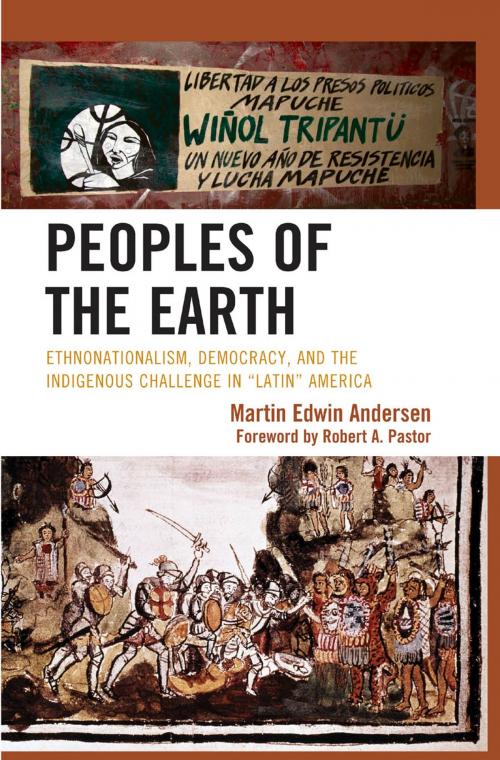Peoples of the Earth
Ethnonationalism, Democracy, and the Indigenous Challenge in 'Latin' America
Nonfiction, Social & Cultural Studies, Political Science, Government, Democracy, International, International Relations| Author: | Martin Edwin Andersen | ISBN: | 9780739143933 |
| Publisher: | Lexington Books | Publication: | July 10, 2012 |
| Imprint: | Lexington Books | Language: | English |
| Author: | Martin Edwin Andersen |
| ISBN: | 9780739143933 |
| Publisher: | Lexington Books |
| Publication: | July 10, 2012 |
| Imprint: | Lexington Books |
| Language: | English |
Peoples of the Earth employs a comparative history of ethno-nationalism to examine Indian activism and its challenges to the political, social and economic status quo in the countries of Central and South America. It explores the intersect between problems of democratic empowerment and security-including the appearance of radical Islam among Indians in two important countries-arising from the re-emergence of dormant forms of ethnic militancy and unprecedented internal challenges to nation-states. The institutions and practices of Indian self-government in the United States and Canada are examined as a means of comparison with contemporary phenomena in Central and South America, suggesting frameworks for the successful democratic incorporation of the region's most disenfranchised peoples. European models emerging from "intermestic" dilemmas are considered, as are those involving the Inuit people (or Eskimos) in the Canadian far north, as policymakers there "think outside the box" in ways that include more robust roles for both sub-national and international bodies. Finally, the work challenges policymakers to broaden the debate about how to approach the issues of political and economic empowerment and regional security concerning Native peoples, to include consideration of new ways of protecting both land rights and the environment, thus avoiding a zero-sum solution between the region's 40 million Indians and the rest of its peoples.
Peoples of the Earth has the potential to become a pioneer study addressing ethnic activism, characterized by multiple, small groups pressing for state recognition and democratic participation, while also promoting a defence of the environment and natural resources. Part of its attractiveness is the likelihood that the work will lead to further investigations and will become an authoritative point of departure for the fertile area of ethnonationalism studies in Latin America. Each country chapter provides a succinct but substantial presentation of the basic issue
Peoples of the Earth employs a comparative history of ethno-nationalism to examine Indian activism and its challenges to the political, social and economic status quo in the countries of Central and South America. It explores the intersect between problems of democratic empowerment and security-including the appearance of radical Islam among Indians in two important countries-arising from the re-emergence of dormant forms of ethnic militancy and unprecedented internal challenges to nation-states. The institutions and practices of Indian self-government in the United States and Canada are examined as a means of comparison with contemporary phenomena in Central and South America, suggesting frameworks for the successful democratic incorporation of the region's most disenfranchised peoples. European models emerging from "intermestic" dilemmas are considered, as are those involving the Inuit people (or Eskimos) in the Canadian far north, as policymakers there "think outside the box" in ways that include more robust roles for both sub-national and international bodies. Finally, the work challenges policymakers to broaden the debate about how to approach the issues of political and economic empowerment and regional security concerning Native peoples, to include consideration of new ways of protecting both land rights and the environment, thus avoiding a zero-sum solution between the region's 40 million Indians and the rest of its peoples.
Peoples of the Earth has the potential to become a pioneer study addressing ethnic activism, characterized by multiple, small groups pressing for state recognition and democratic participation, while also promoting a defence of the environment and natural resources. Part of its attractiveness is the likelihood that the work will lead to further investigations and will become an authoritative point of departure for the fertile area of ethnonationalism studies in Latin America. Each country chapter provides a succinct but substantial presentation of the basic issue















